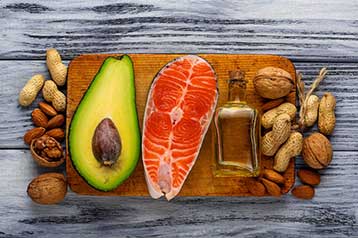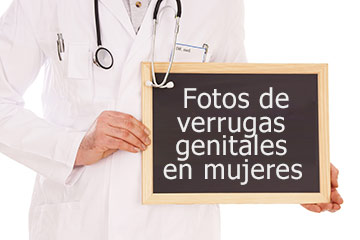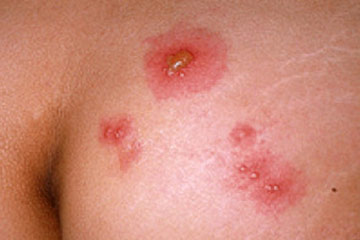You can Prevent Cryptosporidiosis
Crypto (full name is cryptosporidiosis) is a disease caused by a microscopic parasite (a type of germ). It causes diarrhea, stomach cramps, and fever. You get crypto by putting anything in your mouth that has been in contact with the feces (solid waste, bowel movement) of a person or animal infected with crypto.
You can help keep crypto out of your mouth by:
-
-
washing your hands
-
practicing safer sex
-
not swallowing water when you swim
-
washing and cooking your food
-
drinking only safe water
Anuncios -
What is cryptosporidiosis?
Cryptosporidiosis (krip-toe-spo-rid-e-O-sis) is a disease caused by a microscopic parasite, or germ, called Cryptosporidium parvum. Both the disease and the germ are often called "crypto".
What are the symptoms of crypto?
Most people who get crypto have watery diarrhea, stomach cramps, an upset stomach, or a slight fever. In some people, the diarrhea can be so severe that they lose weight. Other people with crypto have no symptoms.
How does crypto affect someone with AIDS or HIV?
Crypto can cause severe illness for a long time in people infected with HIV. You can die from crypto. If your CD4 (sometimes called T helper) cell count is below 200/mm3 , crypto may give you symptoms for a long time. If your CD4 cell count is above 200, your symptoms may last only 1 to 3 weeks. But even after your symptoms go away, you may still be carrying crypto. If you are carrying crypto, even without symptoms, you can give it to someone else. Also, your own symptoms may come back if your CD4 cell count later drops below 200.
How is crypto spread?
Crypto is spread in the feces (bowel movements). Crypto is NOT spread by contact with blood. You can get crypto by putting anything in your mouth that has touched the feces of a person or animal infected with crypto. You can’t tell by looking whether something has been in contact with feces, so you need to be aware of what these things may be. Things likely to be contaminated with feces are
- Skin around a person’s anus (especially important with sex partners)
- Animals (skin or fur of farm animals and household pets)
- Cat litter boxes
- Children in diapers
- Clothing, bedding, toilets, or bed pans used by someone with diarrhea
- Dirt (in gardens, yards, parks, etc.)
- Uncooked or unwashed food
- Water (for bathing, swimming, or drinking)
Can crypto be treated?
Yes. Antiretroviral medicines (HIV medicines) will decrease or get rid of crypto symptoms. However, crypto may come back if the immune system gets weaker. Some drugs may reduce or eliminate the symptoms of crypto. If you suspect you may have crypto, talk with your health care provider to determine which treatment is right for you. If you have diarrhea, you might become dehydrated. Drink plenty of fluids to prevent dehydration. Oral rehydration drinks work well.
How can I protect myself from crypto?
-
Wash your hands.
Wash your hands often with soap and water. Always wash your hands well after you touch anything that might have had contact with even the smallest amounts of human or animal feces (see previous list). Even if you wear gloves when you handle these things, you should still wash your hands well when you finish.
-
Practice safer sex.
People with crypto may have it on their skin in the anal and genital areas, thighs, and buttocks. You can’t tell by looking if someone has crypto, so you may want to protect yourself in these ways with any sex partner:
- Avoid "rimming" (kissing or licking the anus). Rimming is likely to spread crypto even if you and your partner wash well before.
- Always wash your hands well with soap and water after touching your partner’s anus or rectal area.
Be careful around animals:
-
-
-
- Farm animals. If you visit a farm, try to avoid touching the animals, especially young animals (calves and lambs). Be sure not to directly touch the feces from any animal. After the visit, wash your hands well with soap and water before you prepare food or put anything in your mouth. Have someone who does not have HIV clean your shoes. If you must clean your shoes yourself, wear disposable gloves and wash your hands well after taking off the gloves.
- Household pets. Most domestic animals (dogs, cats, birds) are safe as household pets. However, avoid contact with pets that may have crypto. Pets most likely to have crypto include
- Puppies or kittens younger than 6 months
- Dogs or cats with diarrhea
- Stray pets
-
-
-
Have someone who does not have HIV clean litter boxes or cages. If you must do the cleaning yourself, wear disposable gloves and wash your hands well with soap and water after taking off the gloves. Have any new puppy or kitten younger than 6 months or any pet with diarrhea tested for crypto.
Be careful when swimming or using hot tubs.
Do not swallow water when you swim or use a hot tub. Crypto may be present in fresh water, salt water, or even swimming pool water. Protect yourself and others- do not swim or use public hot tubs if you have diarrhea. Crypto is not killed by the amount of chlorine used in swimming pools, hot tubs, and at water parks.
Wash and/or cook your food.
The outsides of vegetables and fruits may have crypto on them. Washing removes crypto from the surface, and cooking kills crypto.
- Wash all vegetables or fruit you will eat raw. If you can, peel fruit before eating.
- Cook food whenever possible. Cooked food and processed or packaged foods should be safe if, after cooking or processing, the food is not handled by someone with crypto.
Drink safe water.
- Do not drink water straight from lakes, ponds, rivers, streams, or springs.
- Do not drink tap water without boiling it if the public health department announces that tap water may not be safe for drinking.
- You may choose to take extra steps to lower the risk of getting crypto from tap water (see below). These steps may take time and may cost money, so you may want to talk about these with your doctor. If you take these extra steps, you should do so all the time, not just at home. Also, remember that water and ice from a refrigerator icemaker and drinks made at a fountain are often made with tap water.
Ways to be sure your water is safe
- Boil the water.
Boiling is the best way to kill crypto. Heat the water at a rolling boil for at 1 minute or at least 3 minutes if living at higher altitudes (>6,500 feet or 2,000 meters). After it cools, put it in a clean container, seal it with a lid, and store it in the refrigerator. Use this water for drinking, cooking, or making ice. Clean containers and ice trays with soap and water before use. Do not touch the inside of them after cleaning. - Distill the water.
You can also remove crypto from your water by using a home distiller. These devices use heat to remove crypto. Store distilled water the same way you would store boiled water. - Filter the water.
Filters trap crypto from the water flowing through them. You must replace filter cartridges regularly and properly or the filter will fail. Have someone who does not have HIV change the filter cartridges for you. If you change the cartridge yourself, wear gloves and wash your hands well with soap and water when done. Filters may not remove crypto as well as boiling does because even good filters may let some crypto through.
Not all home water filters remove crypto.
The following filters are most effective for removing crypto:
- Filters that work by reverse osmosis
- Filters that have "absolute" 1-micron pores
- Filters that meet National Sanitation Foundation (NSF) Standard #53 and #58. More information on "Standard Cyst Filters" is available here.
Drink bottled water.
Bottled water from a protected well or protected spring is less likely to contain crypto than bottled water from a river, stream, or lake; but you cannot be sure it is safe. Any bottled water that has been distilled or treated by one or more of the methods listed under "Filter the water" should be safe.
Other drinks:
|
Take extra care when traveling.
Poor water treatment and food sanitation in developing countries may increase your risk for getting crypto. Take even greater precautions than you would at home. Avoid especially food and drink from street vendors, uncooked foods, tap water, and unpasteurized drinks. Talk with your health care provider about other advice on travel abroad.
Source
Centers for Disease Control and Prevention
-
Importation of Pets and Other Animals Into the United States
-
Pet Travel
-
Pets Travel Container
-
Diseases from Dogs
-
Diseases from Cats
-
Choosing a Pocket Pet
-
Lymphocytic Choriomeningitis Virus from Pet Rodents
-
Pregnant Woman and Toxoplasmosis
-
You Can Prevent Toxoplasmosis (Toxo)
-
HIV. Preventing Infections from Pets
-
You can Prevent Cryptosporidiosis






